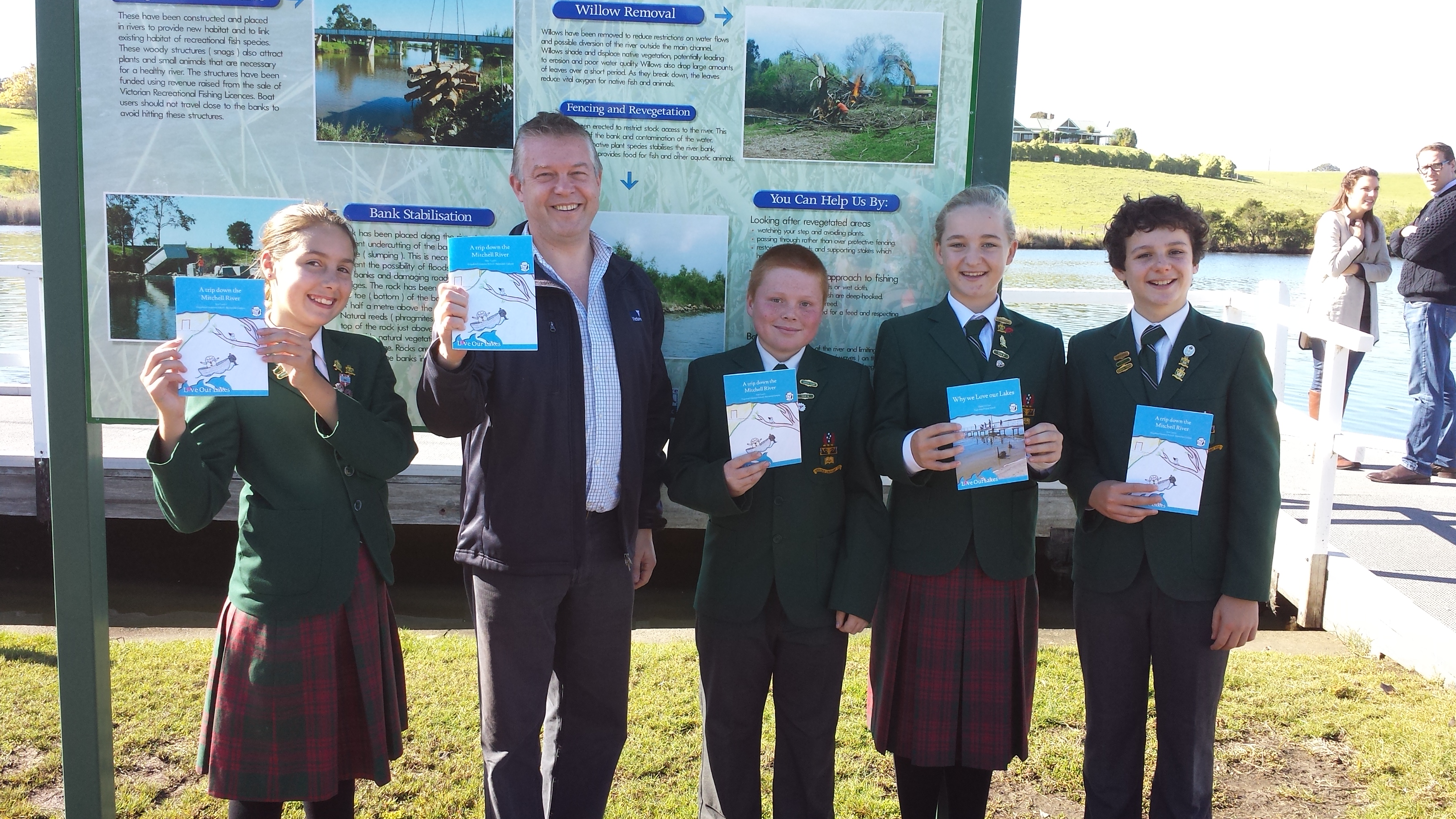
Young authors not sheepish!
Students from Gippsland Grammar’s Bairnsdale Campus and a woolly sheep named Willy have joined forces to highlight the importance of protecting our rivers and lakes.
The year 5/6 students have written and illustrated a school reader, “A Trip Down the Mitchell River”, to showcase the river and its path from Dargo to the Gippsland Lakes.
On his adventure, Willy the sheep learns about local history, farming and clean water, and meets new animal friends on the journey.
The book is the latest in a series of ‘Love Our Lakes Enviro-Stories’; school readers produced by children for children to learn about and celebrate the natural environment of the Gippsland Lakes and catchment.
The book was launched by Minister for Environment and Climate Change and Minister for Youth Affairs, Ryan Smith, in a visit to the Gippsland Lakes.
“Young people are the custodians of the environment for the future”, Minister Smith said. “There is enormous value in providing opportunities for them to learn about their local environment and share this learning with others”, he said.
The program, delivered in 11 primary schools across Gippsland, is funded through the State Government’s Gippsland Lakes Environment Fund, as part of a $10 million commitment to maintaining the health of the Gippsland Lakes and raising community awareness of the importance of the Lakes.
Gippsland Grammar Year 5 Teacher, Prue McNaughton, said that the children had based the book on their experiences from field trips to local farms, businesses and a water treatment plant to tell a story about wildlife and the connections between a healthy natural environment, lifestyle and local community.
“The project is a great way for the students to improve their literacy and drawing skills and learn about their local environment in a creative way”, Ms McNaughton said.
The students are thrilled that their work will be made available for other students in the region to share and learn”, she said.
Executive Officer for the Gippsland Lakes Ministerial Advisory Committee (GLMAC), Martin Richardson, said the project was one of many educational programs initiated on the Committee’s advice as a way to build knowledge and appreciation of the Lakes and catchment.
“It will take only one or two children to be inspired to go into environmental work, scientific research or community roles after reading the book and it will have made a difference for the future”, he said.
“The bonus is that they all get an immediate benefit in their day-to-day learning environment”, Mr Richardson said.
The finished books will be circulated to schools through East Gippsland for use by students.
